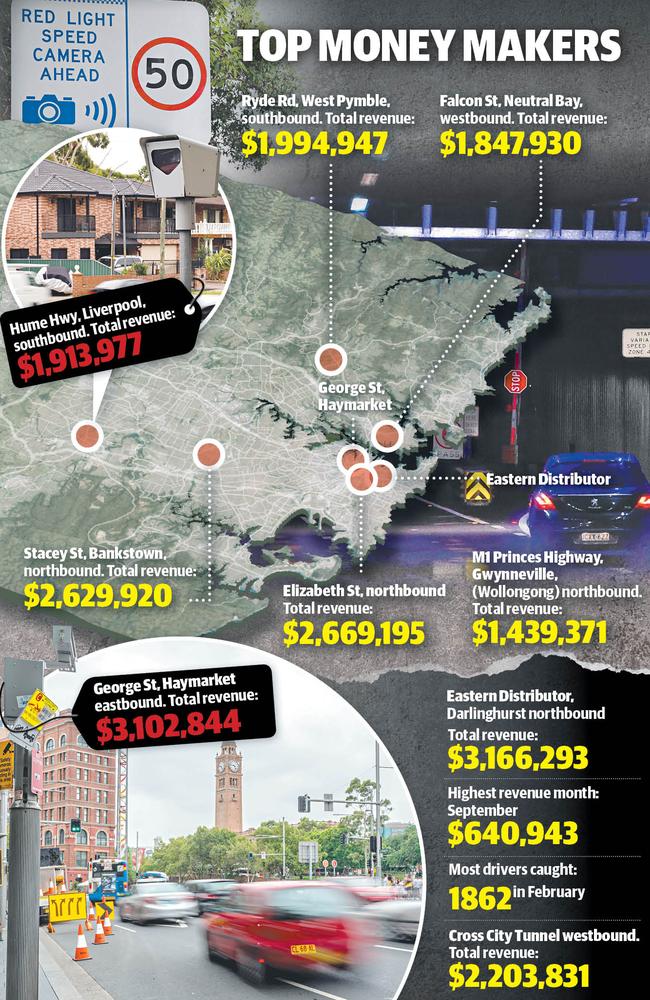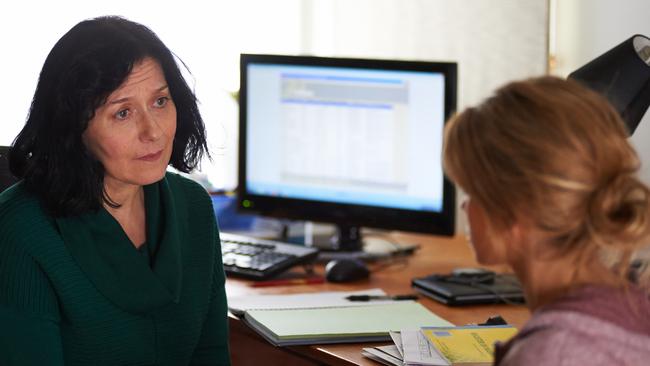Daily Telegraph editorial: Slow one day, fast the next
Over the long term, humans tends to be consistent. It can sometimes take many decades for behavioural characteristics across large groups of people to alter in any significant way.
Opinion
Don't miss out on the headlines from Opinion. Followed categories will be added to My News.
Over the long term, humans tends to be consistent.
It can sometimes take many decades for behavioural characteristics across large groups of people to alter in any significant way.
Therefore, when a particular NSW speed camera catches so many speeding motorists within a month that fines of more than $640,000 are handed out, it seems reasonable to expect other months in the same year to deliver similar results.
Perhaps the amount will vary from month to month by a few per cent. But overall, given the same traffic on the same road, any month should pretty much catch as many speeding drivers as any other month.
But that is not happening.

The speed camera in question, in the Eastern Distributor at Darlinghurst heading north, during one month last year raked in $641,000 worth of fines. But in another month it dished out fines of just $35,000.
That erratic Darlinghurst speed camera is not an isolated case. The southbound speed camera on Silverwater Road, Silverwater, caught 84 speeding drivers in August last year and 75 in September but only two in March and five in July.
Clearly, something is up with these cameras. The discrepancy in detected offences cannot in any probability be explained by sudden seismic behavioural shifts by drivers.
There is no way that drivers can veer so suddenly from being fanatically law-abiding to being sufficiently above the speed limit to attract official attention.
“There is clearly a significant disparity in the figures,” Jasmina Ceic, a senior associate with law firm Nyman Gibson Miralis, said.
“It is not unreasonable to assume,” Ceic continued, phrasing matters with an admirable caution, “that there are serious problems with the function of the cameras.”
The Daily Telegraph understands the need to curb unsafe and inattentive driving, and therefore supports the sensible deployment of speed cameras and other means of keeping drivers below our speed limits.
But if these cameras are unreliable, then it calls into question the accuracy of detected speeding offences.
These devices should have a proven record of reliability and trustworthiness.
The NSW government ought to at least consider reviewing their speed cameras.

Pony power beats the bats
Let’s talk about anything except cricket. Please.
Instead of cricket, let’s talk about the great egalitarian pastime of … polo.
It isn’t every day that polo features prominently in The Daily Telegraph, but then again it isn’t every day that NRL great Billy Slater tries his hand at the game.
By all accounts, long-time riding devotee Slater proved more than useful. “Riding around afterwards was like the end of an Origin game,” the retired Queensland captain said.
An Australian sportsman doing well. A rare occasion.

If pocket pain persists...
Most Australians are doing reasonably well at present. Unemployment is down and the economy continues singing.
But for Australians on the margins, and that is not a small fraction of the population, matters are such that difficult choices have to be made.
During the winter, demand for clothing from charities soared as families struggled to pay heating costs. For some, evenings involved a choice between warmth and food.
Choices are also being made in other areas where cost should not be a factor. As The Daily Telegraph reveals, some Australians are now avoiding medical care as the cost of visiting a doctor hits new peaks.
Some GPs are now charging patients $120 for a consultation. One in three patients are paying on average more than $36 out of their own pockets for each visit to their local GP.
Little wonder, then, that people are bypassing GPs in preference for dropping in at hospital emergency departments.
Decisions about health should not require worry about covering health costs.
The Daily Telegraph, printed and published by the proprietor, Nationwide News Pty Ltd A.C.N. 008438828 of 2 Holt St, Surry Hills NSW 2010, at 26-52 Hume Highway, Chullora. Responsibility for election comment is taken by the Editor, Ben English.
